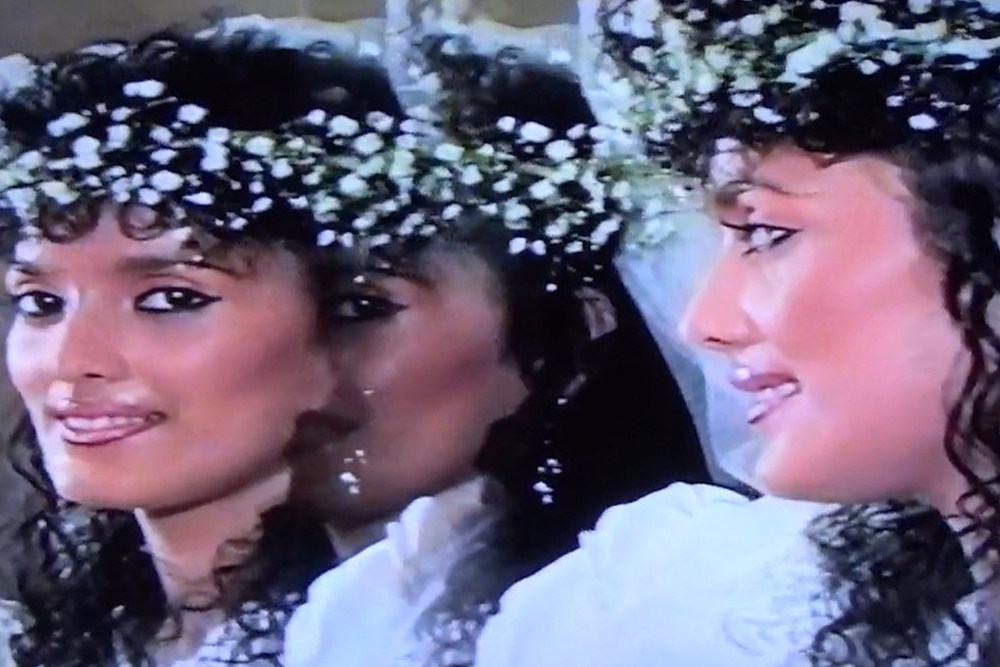In “The Taste of Mango,” Chloe Abrahams recalls going into her mother Rozana’s bedroom where a picture of her grandfather sat above her bed, a man that neither one of them would really know when Rozana was just eight months old when he passed away, with her mother Jean recalling how he left on his bike one afternoon and never came back, only 27 years old at the time of his death. Now roughly around the same age as he was, Abrahams tells her mother that she would talk to the picture as a child, both ever-present but unable to respond, allowing him to loom large in her mind even as he might’ve receded a bit for those who shared time with him on this earth.
Men rarely appear on screen in Abrahams’ bewitching family portrait, but the impact they’ve had on the lives of the women feels at times if it’s beyond measure as the filmmaker and her mother live in England while Nana Jean resides in Sri Lanka, feeling very much as if they sit on distant islands. Still, Abrahams is far less interested in their power than the strength shown by her mother, demonstrating her love for her daughter by graciously putting up with questions and going through knickknacks for the purposes of her film, though something is clearly amiss. When watching her mother’s wedding video, a heartfelt voiceover offered by the filmmaker expresses her prediction that Rozana would call off the marriage to her father five years before she actually did and some of the photos they sort through are torn in half without explanation, eventually arriving at a photo of the man Jean married after her first husband, whose actions destroyed the relationship between Rozana and Jean without facing any consequences himself because Jean has never fully acknowledged his actions.
Even without the often lyrical, conspiratorial narration that relays her admiration, Abrahams films her mother with radiance, collecting footage of her gardening and singing country songs without the sense that her life might make a good one. The director notes she didn’t know Rozana could cry until a moment of teenage impudence she called her a bad one for not letting her attend a sleepover for reasons she wouldn’t understand until much later, and in “The Taste of Mango,” there’s a sense that in laying the family’s history bare now, they’re creating the foundation for something even more resilient.
After enduring an uneasy visit from Jean in which Abrahams seems more upset than Rozana that she’s coming, the film sees those roles reverse over time when Rozana seems more conscious of the emotional toll it takes to host her and for as much can’t ever be documented for the story that Abrahams tells, if for no other reason than the unspeakable that occurred and the extended periods of time that her mother and Jean stop talking, the director makes connections cinematically that transcend what appears possible, much like Rozana finds ways to continue on without letting the past hold her back. What could be a devastating chronicle of trauma is transformed into a reverberant profile in hope when lines of communication aren’t entirely cut off, thanks in part to Rozana’s resolve and Abrahams keeping the conversation going with her camera. It isn’t only beautiful to witness a clarity emerge in “The Taste of Mango,” but to understand how difficult it has been to come by.
“The Taste of Mango” will screen at True/False on March 4th at 3 pm at the Big Ragtag and March 5th at 3:15 pm at the Showtime Theatre at the Blue Note. It will next screen in New York at First Look Festival at the Museum of the Moving Image on March 17th at 7 pm.




